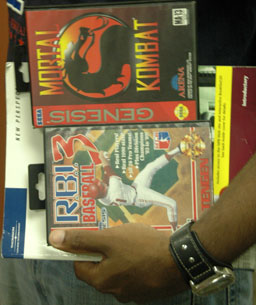By Alex Muhindura/ne news editor
As news broke of another chapter unfolding in the bleak story of the Congo, I wondered how many people knew of the ghastly origins of their favorite technological toys.
The turn of the century boom that flooded the market with cheap, high-powered gadgets has a dark underbelly and bears responsibility for the most gruesome war since the Wehrmacht stormed Europe.
While the official story paints a simplistic picture of tribal warfare, a deeper view reveals a sordid entanglement of mining interests, the Rwandan government and its American and British allies as they chase the vital ore, coltan. The hunt for access, exploitative mining and ruthless tactics to maintain territory has led to millions of deaths and created a lost generation without a country, an education, healthcare or a future.
Coltan, which powers popular gadgets from laptops to cell phones, also fuels the war that claims 1,500 lives daily. As we send e-mails on our smart phones, children toil in mines, women are raped and mutilated and refugee camps are shelled.
This conflict began in the aftermath of the Cold War but has raged for nearly two decades growing in scope and carnage. Looking for an American foothold in French-controlled Central Africa, the Rwandan Patriotic Front attacked Rwanda in 1990. At the height of a brutal civil war, the RPF shot down the presidential plane sparking nationwide chaos and violence broadcast worldwide. It seized power amid the mayhem, which led to a mass exodus of Rwandan citizens into neighboring Congo. In 1996, supposedly bringing the genocidaires to justice, the RPF attacked Congo and secured coltan mines along the border.
This Rwandan occupation, along with surges in violence every few months, is directly responsible for countless orphans and limbless or hopeless people who populate eastern Congo.
Rather than finding war criminals, the invading army is engaged in an extermination campaign to eliminate any threat of an insurgency by the former Rwandan government. These barbaric acts, like raining bombs on camps of displaced civilians or gang-raping women before shooting them in the vagina, show the justice they hand out.
In an attempt to stabilize the situation, Angolan, Namibian and Zimbabwean troops were recently sent to assist the Congolese army in their defense against the RPF. While the attempt is noble, they are no matches for the well-supplied proxy militias representing mining interests.
We can cry foul and demand a deployment of the ironic peacekeeping force or a halt in the production of tainted technology, but little will change until our voracious appetite for coltan is curbed.
As we continue to fan the flame, we should at least pause to recognize those who sacrificed so much for so little.
























